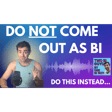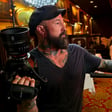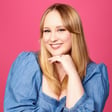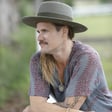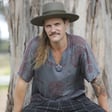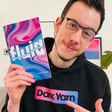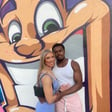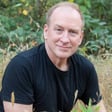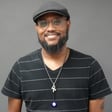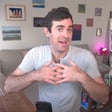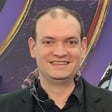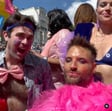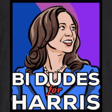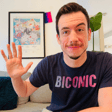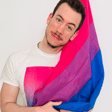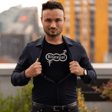Introduction to Two Buy Guys and Zencastr
00:00:00
Speaker
Hi, I'm Rob. You're listening to Two Buy Guys. But first, are you looking to promote your brand to a target audience? Then Zencaster's Creator Network is the perfect place for you to get into podcast ads and sponsor your favorite creators, like me.
Zencastr's Impact on Podcast Advertising
00:00:14
Speaker
Podcast advertising is way more effective than display advertising, with 67% of listeners remembering brands and 63% making a purchase after hearing them.
00:00:24
Speaker
So whether you want to diversify your ad spend, add a new marketing stream or test out podcast ads, Zencaster's creator network makes it easy for brands to connect with podcasters. Zencaster matches you with the best podcasts like this one, so your product gets to the right audience and can maximize your advertising campaign budget.
Success Stories with Zencastr Creator Network
00:00:42
Speaker
So start podcast performance marketing with Zencaster's Podcast Marketplace. They've made it easy to track conversions by integrating with major payment platforms such as Shopify and Stripe, and they've already proven that with the right fit, smaller podcasts can outperform bigger ones in a variety of verticals, allowing them to work with all podcasters.
00:01:02
Speaker
And I can attest to that. I've been part of the Zencaster Creator Network for a few months this whole season, and they've been great connecting me with brands, helping me with the ads, making sure that the brands will match our audience so that people are actually interested in what we're talking about and so that I can keep creating.
Sponsoring Two Buy Guys
00:01:20
Speaker
Interested in sponsoring this show or podcast ads for your business?
00:01:23
Speaker
Go to zen.ai slash to buy guys zero. That's zen.ai slash T-W-O-B-I-G-U-I-S, the number zero, and fill out the contact information so Zencaster can help you bring your business story to life.
Introducing Lydia Green
00:01:52
Speaker
Hello, everyone. Welcome to Two Bye, guys. I'm here today with a special guest, a friend of mine who is running for office. I'm here with Lydia Green. Lydia is a 25-year-old, bi-Jewish woman, organizer, Democratic Party reform activist, and lifelong fourth-generation Brooklynite.
Rob and Lydia's History
00:02:12
Speaker
She is running for district leader of New York City Assembly District 52, which we'll ask her about.
00:02:18
Speaker
And we are old friends from Buy Request. We met at the Buy Discussion Group in New York City. So it's nice to see you again after a couple years of being away from Buy Request. But welcome to 2Buy Guys, Lydia.
Lydia's Identity and Pronouns
00:02:31
Speaker
Yeah, thanks Rob. It's weird being on this because I'm also a long time listener.
00:02:38
Speaker
Cool. We love it. We love to just bring everyone into the fold. Eventually we'll get to everyone. Run for office and that's how you get on the podcast quickly.
00:02:49
Speaker
So we'll talk about the office stuff and the politics, which we love talking about on this podcast. But first, let's talk about you and your story and your bi identity.
Exploring Disability and Identity
00:03:01
Speaker
So I think I just went over this. But tell us in your words, what pronouns do you use and how do you identify on whatever spectrums you would like to identify on? Yeah, I think you did go over a lot of it. But I use she her pronouns. I'm a woman.
00:03:18
Speaker
I'm bisexual, I'm Jewish. And, um, I've also lately been, been sort of toying with using the term disabled to describe myself. And actually the episode that you, you had of your podcast last week was like one of the things that made me think of that because your, your guests mentioned about how disability is something that, that people feel like you have to be a certain amount disabled, um, in order to qualify similarly to being bisexual and
00:03:46
Speaker
I also saw something on Twitter that was similar and those things together have made me feel like, oh, well, yeah, I do have mental illnesses and I have experiences that could qualify as disabled. So I don't know, that was a long one. No, interesting. Yeah, no, I mean, it was really interesting what Ruby talked about last week about how, I mean, it's two different things, but how
00:04:13
Speaker
similar sort of that experience can be in terms of recognizing it, coming out, integrating it with your identity, shedding shame and stuff. Okay, so we'll get into that. So I'm curious, I don't even remember when we met in By Request, but you're pretty young.
Discovering Bisexuality and Omnisexuality
00:04:34
Speaker
So when did you sort of start to realize you were by and what was that development like? And then we'll talk about how it intersects with those other things.
00:04:42
Speaker
Yeah, so I am pretty young, but I feel like I was relatively, well, not old, but on the older side from when I realized that I was bi, I was in college already. And so I grew up in Brooklyn, but I didn't even really hear that bisexual is an option as the case for many bi people until I was in my teens.
00:05:06
Speaker
And then it took me a few years to realize that that was something that could apply to me. So it was right around like 2017 when I first started questioning. And what really sparked that questioning was that I actually found out about the word omnisexual, which I don't necessarily identify as omnisexual. But previously, I had just heard of bisexual and pansexual. And I thought that it was like, if you were attracted to
00:05:33
Speaker
multiple genders, there was like one specific way that you could do that. And that was being gender blind and feeling like gender doesn't matter. And the way that I had felt attraction was always very different depending on the person's gender. And so I was always assuming that my attraction to men was real and my attraction to women and non-binary people was not attraction and was something else. Interesting. And so hearing hearing about the term
00:05:58
Speaker
omnisexual just kind of blew my mind and made me realize, oh wow, it could be possible that all of these are attraction and that I could be attracted to multiple genders and that I am allowed to identify as bi. How do you define omnisexual? It's been a while since I've used that word.
00:06:18
Speaker
Yeah, so it's it's often used in contrast to pansexual. And so it's attraction to all genders. But while pansexual is regardless of gender, omnisexual is like, I want to say almost like because of gender, like, you're not gender blind, you see differences between genders and maybe you feel different ways about different genders, but you like them all.
00:06:40
Speaker
Yeah, interesting. I do hear, you know, people have different experiences with that.
Generational Identity: Zillennial
00:06:45
Speaker
And like, it seems like especially among, I'll say your generation, we're like, we're like half of the same generation. But you're, you're a little more connected to the young people. That's, that's another thing that I that I have on a spectrum is like my generation. I'm like right in between generations.
00:07:03
Speaker
You called yourself on Twitter a zillennial, is that what it says? Yeah. What does that mean? Zoomer slash, or Gen Z slash millennial in between. Yeah, exactly. Um, cause so I was born in 1996, which is some, some people define that as being millennial and some people define it as being Gen Z and, and I have similarities to both generations. I have friends in different generations. So I'm like right in the middle.
00:07:29
Speaker
Well, you better pick one side, otherwise people will be confused about you forever. No, I like that. Okay, but so I was going to ask, like, I think, we don't have to get too deep into this, but since it came up this whole, the labels thing and bi, pan, omni, like,
00:07:45
Speaker
It seems to be a bigger debate among young people who like to use the word pan, but there are a lot of people like you who are not attractive regardless of gender, but can experience attraction. The potential is there, but it might feel different. So I guess my question is, what do you see among young people in terms of that stuff?
Evolving Terms in the Bi Community
00:08:06
Speaker
And how do you experience that omnisexuality?
00:08:09
Speaker
Yeah, I think that a lot of young people do tend to use pan or queer or something else, but there are still a lot of people who use bi. So I personally felt like I didn't necessarily identify with pan, as I mentioned, because I didn't feel gender blind about my attraction. And I also, I think when I first started questioning my sexuality, I was
00:08:34
Speaker
I was like, well, I don't know if I'm actually attracted to all genders. I know that I'm attracted to more than one gender, but I don't know if it's all genders. And so I'm not ready to make that decision. And also, I just really like the bi flag and the history associated with bisexuality. And I think Brenda Howard is really cool and all of the organizers who've been working towards bi rights for the last 40, 50 years.
00:09:04
Speaker
Well, we'll get into it more later because there's always this issue of uniting together in solidarity. And when are the things that make us unique important to talk about? And when are the things that bring us together important to talk about? And we will talk about that in terms of the Democratic Party in a few minutes.
00:09:23
Speaker
Getting back to, okay, so you kind of realized it in college, which is late. Everyone thinks they came out late. It's funny, no matter how young they are.
Support and Exploration with Sister
00:09:33
Speaker
I think I came out late. I was 30, but someone else at Buy Request came out in 50s and 60s. Anyway, what happened next? When did you actually start coming out? How did you kind of integrate that identity into your life?
00:09:48
Speaker
Yeah. So I started talking to my sister about it. She was the first person I sort of told that I was questioning. And then it also sort of sparked her questioning her identity also, which was really cool. Cool. And so then we took this sort of queer questioning journey together for a while. And so this was over the summer and then I went back to college in the fall and I decided to go check out the
00:10:15
Speaker
like LGBT club on campus, which in my school is called Allies.
00:10:20
Speaker
And I was thinking I would go there and just sort of like be a straight cis person. But then on the first day, they had us go around in the circle and they were like, what type of queer are you? So I was like, oh, well, I guess I have to spill the beans. And so like I mentioned that I was sort of like questioning and maybe a little bit
00:10:46
Speaker
attracted to women and they were really kind. They were basically like, well, any amount of queer, you're welcome. There is no gatekeeping here. And so I really appreciated that. And that made me feel more welcome to explore my sexuality. And I sort of kept coming back to this club for a while and also like talking to my sister.
College Coming Out Experience
00:11:10
Speaker
And at some point I felt like
00:11:13
Speaker
Okay, I've like thought about this enough. I think I even like
00:11:19
Speaker
There was a point where I was like, okay, I'm bi and I like identifying that way, but I don't know if I qualify, which I think is probably common for a lot of bi plus people. And I had some experiences where I was like, I would kiss a woman and then I'd be like, oh, well, I don't know if I really liked that, but it wasn't like, I don't like this person or was it, I don't like this gender.
00:11:45
Speaker
Right. I think that I when I started coming out, I was like not quite ready. And like in terms of to my to my parents to my friends.
00:11:56
Speaker
I think I was sort of feeling like I, well with my parents, it actually happened that because I had also been talking about this with my sister, we sort of planned that we were going to come out together. And I think she was a little bit more ready to come out. And I don't know, it was nice to sort of have someone else to come out with at the same time.
00:12:16
Speaker
But on the other hand, I think that I maybe should have waited a little while until I was a little bit more secure in my identity, which like I feel I feel a little bit security, a little bit more secure now than I did then. But at the time it was it was like I felt like I, I had to like come out and also defend both for myself and to other people that this was a real sexuality and that it actually applied to me. Yeah.
00:12:42
Speaker
I totally identify with that part. I almost feel like a lot of the first handful of people I came out to, especially my parents, I was doing more explaining what bisexuality is and saying that I believe in it rather than saying, I'm that, just proving that it was real. Yeah.
00:13:03
Speaker
Yeah. And like, I think, I mean, I don't, I don't fault my parents necessarily. I think they also didn't know about bisexuality until around the same time that I learned about it. And like, if they had known about it, they would have taught me about it. But yeah, instead I had to teach them about it, which was an interesting role reversal. And did your sister come out as bi also?
00:13:26
Speaker
she so she came out as bi also i think she's now she sort of like doesn't really like to label herself she's more attracted to women and non-binary people and and like i think she she likes to use gay as an umbrella term which is another thing that i feel like i've been seeing younger people well i guess it's also like back in the like stone wall era they were used gay as an umbrella term but um i i always felt like i didn't really like using the term gay for myself because i felt like it was
00:13:55
Speaker
erasing other like bisexuality and like I'm thinking of, for instance, like Orange is the New Black, how she is in a relationship with a man and she's straight, and then she's in a relationship with a woman and she's gay, and no one says bisexual at any point. And if they had used that opportunity to use the word bisexual, they could have educated people and taught people about another identity that exists.
00:14:18
Speaker
And I feel like in a lot of ways, like that's part of the reason why it took so long for me to even learn that this was an option was just because people don't talk about bisexuality and don't use the word bisexual. So my younger sister, so she's four years younger than me, so she's very much Gen Z. But she likes to use gay as an umbrella term, whereas I feel more comfortable with queer. But she did initially come out as bi, but I think she's sort of
00:14:47
Speaker
backed away from labels a little bit since then. Cool. I see a lot of that, too, of people not really wanting labels either. But I think it speaks to the inherent fluidity of a lot of this stuff. And it makes sense to me that people don't want a fixed label. But that's why I try to tell them that the label bisexuality includes all of that fluidity.
00:15:13
Speaker
it can be a stable label even when things are fluid. But still, to each his, her, or their own, and whatever label identifies you best and you feel comfortable with, great.
00:15:31
Speaker
Your experience with the group at your college, I feel like I had that experience with by request of like, I wasn't quite ready for it. I was going to sit at the back and not say much, but then like I got there and it's a circle and like I, I wanted to speak and I just jumped in. What, so what, like, I guess, what was it like the rest of college? Did you come out there and then how did you get to by request after that?
00:15:55
Speaker
Yeah. So there is more to the story. There's more. OK, sorry. Continue. Yeah. So for a while in college, I was questioning and actively trying to explore my sexuality. And then there was a while in my very last semester of college where I was just not focused on it. And I was like, OK, well, maybe I'm not really queer. Maybe this was just a phase.
00:16:22
Speaker
I don't know but then I always sort of felt like straight didn't exactly encompass the entirety of my identity and I always sort of felt a little bit uncomfortable with trying to identify myself that way and so it was there was a while where I was I was sort of like
00:16:41
Speaker
I'm bi maybe but I don't know and I just like didn't talk about it and it was like I came out to my parents I think it was six months after I finished college maybe and and like it was in that period of time where I was sort of like I don't know maybe maybe not and I guess it was also just like because I wasn't in college and because I was spending most of my time with my family and like meeting new people because I was
00:17:05
Speaker
getting out of college and trying to make friends in the real world. I just like didn't have a queer community around me as much.
Reconnecting with Queer Communities
00:17:12
Speaker
And so I just like felt very disconnected from it. And then, so I went to pride in 2019. And that was how I first heard out of, found out about by request was because someone was handing out flyers for it. And
00:17:26
Speaker
But it took me a few months to actually get up the courage to go, which I feel like a lot of people have also, and like, I think you might've said that you, you like took a few tries before you could actually go in the building. I walked right past it at least once. Yeah. I know that I was like sitting on my desk for, for like a few months before I could get myself to actually go in. Like the fact that it was in an LGBT center, I was just like run into the, like, like hide and run and run and close the door.
00:17:56
Speaker
And then once I was inside, I was feeling like I was an imposter. Still, I was like, I'm not a real queer. I'm a fake. Both ways were not great.
00:18:10
Speaker
both being outside of the queer center and inside. But then I think the first meeting that I went to was actually the same week as your first podcast episode. Yeah, because it was like September 2019. It was like by visibility day or something. Yeah, it just happened to coincide with with by visibility week. That was my first time going by request.
00:18:30
Speaker
Cool. It was just a happy coincidence and Alex was there. I don't think I met you until like a month or so later, but Alex was there and Alex made an announcement about the podcast and I was like, Oh, that's cool. I'll check it out. Perfect timing. And now it's full circle. Okay.
00:18:46
Speaker
And then I feel like I like being parted by request and and just like having a lot of friends who identify as queer and also I feel like taking care of my mental health and like therapy have been helpful in in like figuring out my sexuality and feeling more confident.
00:19:04
Speaker
in who I am. And I think especially with buy request, the first time I came in, I felt like there was a very specific box that I had to fit into in order to identify as queer, which I think that was a topic of one of the buy request meetings that we were talking about. I seem to remember we were talking about buy boxes. Sounds like a buy request topic, yeah.
00:19:26
Speaker
Yeah, but I felt like there were, there was some, some specific stereotypes that I had to fit into. And I felt like I didn't necessarily meet all of the requirements, but then being at by request was like, I think, I think being in person at by request was also just like way more extreme of this than, than we've had on zoom, um, that it's just been like in person, people from all walks of life, um, different ages, different races, different abilities, different genders.
00:19:55
Speaker
different religions, just like every kind of diversity you can possibly think of. And it's amazing how that managed to be a thing. But I walked in and I was just like, well, no one here is the same. And so I'm allowed to be here no matter who I am and no matter how I present or
00:20:16
Speaker
like what's going on inside of me or anything. And so like that really helps me start to feel more valid in my identity. And I guess it was also like having more sort of
00:20:31
Speaker
flirtations with women that that also sort of like solidified for myself like okay yes I like I know I've had very strong romantic feelings for guys before but it was like women I was like I don't know maybe I'm just sexually attracted to them maybe I like and then there was also that feeling of like am I just like a bad bisexual stereotype of like I want to date men and just sleep with women and it's like not real
00:20:56
Speaker
has that like so you were talking about your attractions may be different based on gender so like that makes sense it's basically how I felt at the beginning in reverse has that like shifted for you over time like since since you were first there the how you feel about different genders
00:21:14
Speaker
Yeah. Um, I mean, I think it still is, is somewhat, I don't know. I don't know how to describe how it's different, but I still, I still think that my, my attractions are different and they just like, they feel different physically in my body. Interesting. But I think it has also like, I've, I've opened up more to the possibility of being in a romantic relationship with a woman, um, or a non-binary femme person.
00:21:38
Speaker
and in a way that I was not before. And I think also just like being part of queer spaces, going to queer bars, being part of queer groups on social media, all of those things have helped me sort of explore and be able to like imagine myself in a relationship with a woman. There also to some degree, I think I probably was
00:21:59
Speaker
romantically attracted to women and didn't and sort of didn't accept it in myself or like didn't didn't let myself like believe that that it was true like I think maybe there was some internalized homophobia or biphobia which I think also is common for a lot of a lot of queer peoples but you just like look back over your your childhood and you were like teenager years and you're like oh
00:22:20
Speaker
I was so queer. How did I not notice? In high school, there was this girl who I was really close friend with. She was an exchange student from Spain. Looking back on it, I definitely had a crush on her. I was obsessed with her. I literally followed her to Spain.
00:22:45
Speaker
I went to Spain the next summer so that I could visit with her. And then I remember saying something like, I wish you were a boy so I could date you.
00:22:56
Speaker
And I just didn't realize that that was how queer that was. Yep, yep. I know it's like I also got so close to realizing it at times in my childhood, but there was just a big wall up there and I never actually saw it. And then looking back, you see how close you got to something that was explicitly queer. It's like, oh, yeah, that makes sense.
00:23:24
Speaker
Yeah, I mean, I guess I guess one one other thing is just that I feel like the it seems like some people sort of come at it from like Alex comes from a place of identifying as gay and then finding out that he he was attracted to more than just men. And whereas you come from the other side of identifying as straight for a long time. And then
00:23:44
Speaker
figuring out your attraction to same gender. I think I'm more on the straight, started out on a straight side and I definitely throughout middle school and high school and college, I think this also intersects with mental health struggles in a lot of ways as well and feeling like I was trying to prove something with myself and I constantly feeling anxious and all of the
00:24:12
Speaker
crushes and, and like, I didn't really have relationships in college, but if I had, I probably would have felt very anxious in those also. Um, and just feeling like I, like I had to prove something and that like,
00:24:21
Speaker
I had to prove that I was really attracted to men and I had to prove that I was straight enough and that this was real and the other feelings that I was having were not real. And so I think I sort of went to an extreme and throughout high school and college, I was very boy crazy. But then I think when I started coming out as queer, I felt like, oh no, people know me as really boy crazy. How could I be attracted to women if people think that I'm bad?
00:24:49
Speaker
Yeah, interesting. I definitely identify with that feeling of which of these feelings are real and what if I'm diluting myself and what if the things I feel are not real or whatever, and it can be hard to figure out. But actually, it's interesting to connect that to mental health because of course it is, but I don't think I realized that at the time that that's self-doubt
00:25:15
Speaker
is a mental health issue and is related to my anxiety, which I'm working on now with a therapist. And my mental health and coming out as bisexual were very much connected. It was the same moment when I shifted things in a big way on both fronts.
00:25:34
Speaker
Do you want to talk a little more about your mental health journey, like how you got into therapy or realized you should be and how that intersects with your bi identity and like the disability you brought up and all that? Yeah. So I've really struggled with anxiety since I was like 11 years old, like both regular anxiety and social anxiety.
Overcoming Anxiety
00:25:58
Speaker
And so like when I was a really young child, when I was younger than 10,
00:26:02
Speaker
I was very outgoing. I would make friends wherever I went. My mom would say every time she took me to the playground, I would make a new friend. And then all of a sudden when I was in middle school, I just became really quiet and I was really afraid to just speak and interact with people.
00:26:20
Speaker
And people started saying that I was shy, which I felt like it didn't exactly, I felt like that wasn't exactly right because it felt like I wanted, I felt like I needed to interact with people and I wanted to, and that this anxiety was sort of preventing me.
00:26:37
Speaker
I guess that's that's another another binary of like extrovert introvert that I think that I I don't fit on one one or the other completely well, but I think that yeah like growing up like I was very extroverted and then all of a sudden people started like labeling me as an introvert and I was I was sort of like well no not really but I think for a long time I was sort of just like okay well this is just how I am like I'm shy now and
00:27:05
Speaker
It's weird because I used to not be shy and I used to really love talking to people and meeting new people and now I just don't. And it was really not until college that I started addressing it really. Well, also in college, I also experienced depression for one of the first times. So I was never officially diagnosed with depression, but the way that my therapist and I have talked about it is that they're sort of depressive episodes.
00:27:33
Speaker
And that I like I went through periods of like at least six months where I was just like had low energy and everything was just like very like it was difficult for me to like get up in the morning and do my homework and go to class and and like I just felt like sad and and just depressed.
00:27:54
Speaker
So I had two of those episodes during college and they were both actually around, basically I had like been trying to date someone and that it didn't go well. Like both of the episodes were like around romantic rejection. And I think that it had a lot to do with feeling like wanting to be in a relationship with these people and especially because they were men, feeling like this was a big part of my identity and that like
00:28:22
Speaker
I was never going to be a good straight woman or something. And so it wasn't just about this one rejection. It was a whole identity shaking and life changing.
00:28:36
Speaker
experience. So I had I had some therapists on campus and my like the mental health system on on my college campus was like not great because they they limited how many sessions of therapy you could get per I think was per semester. So I actually like had I was seeing a therapist for a while and then
00:28:57
Speaker
we had a session and she was like, Oh, this is our last session. And then I had like one of my really huge rejections. And I was like, I needed a therapist and I lost my therapist right then. And, and they gave me a referral to someone else. But then, but it was it was like, I just did not have the mental energy to figure out like,
00:29:19
Speaker
like the stuff with insurance and like figuring out and scheduling a time to meet. And so I just sort of like let that fall to the side and didn't really pursue it. But then eventually I came home for the summer. And actually, now that I think about it, this was the same summer that I started questioning my sexuality that I found my current therapist.
00:29:45
Speaker
here in Brooklyn and so like when I was back at college I was seeing her through well it was back then it was Skype.
00:29:53
Speaker
Yeah. And then when I was home, it was in person. And I think she was very good because she's very focused on mindfulness and listening to yourself and listening to what the different parts of you are trying to say and why they're showing up in certain ways at certain times. And I found that very helpful.
00:30:16
Speaker
And yeah, I mean, she's still my therapist now.
Therapy and Mental Health Journey
00:30:19
Speaker
And I think also like another thing that really helped with my mental health was, which I don't know if it was if it was actually this or if it's like a placebo effect. But like medication, like I'm on SSRIs now. And since I started taking that, like I've noticed that my norm, so like I was saying, I have like, generalized anxiety, and then also social anxiety. And
00:30:41
Speaker
that's like really, really helped with the generalized anxiety. And like, it's basically, I mean, it's not all gone, obviously, like everyone experiences anxiety now and then. Um, but it, it was, it was like, I wouldn't, I noticed that like right before I started this medication, I did, I had a job interview and I was nervous about it for a whole week before the interview. And then a few months into taking the medication, I had another job interview and I was only nervous the day before. And so it was like,
00:31:07
Speaker
It completely changed the way that my brain was thinking about these like new and scary experiences. And it was, it was like, it used to be that, that things would just like completely overtake my brain and now I can have a little distance between it.
00:31:21
Speaker
Cool. That's awesome. I'm glad, I'm glad that's helping. And it's awesome that you're like running for office and open about talking about this stuff. Cause it really is like so common, so normal. Like we should talk about these things and what strategies we use and medications. And so that's very cool. And also I, I mean, I identify with a lot of that, not all of it, but like most of it, it's in particular, just to go back a second. I was also told, kind of told, I was shy as a kid and I, and I like,
00:31:51
Speaker
looking back, it's like, I don't actually think I'm shy. I think there was something else going on, and maybe it was anxiety about how I presented myself or something. But I do remember being told I was shy and internalizing that and thinking, oh, well, I guess I must be shy, and that's sort of who I am. And it was a part of my identity for a long time. And then
00:32:15
Speaker
I don't exactly know when I shed that, certainly at some point before this podcast where I talk about all the sex I have and stuff to a bunch of thousands of strangers. I don't think you guys call me shy anymore. But I don't know, that's just interesting that there's that parallel how like,
00:32:33
Speaker
we fit into the boxes that other people see us in. And the same with introvert-extrovert. Every time I take one of those tests, I'm like 48% extrovert, 52% introvert. I'm somewhere right on that margin. So maybe that's a bisexual thing. Yeah, maybe. I think also one other thing that I meant to say was that I think the social anxiety, it also relates to my bisexuality in that my social anxiety tends to be
00:33:03
Speaker
I'll be watching myself trying to see myself through another person's eyes and figure out what are they thinking about me and how am I being perceived by them.
00:33:15
Speaker
And I think part of it was like feeling like I had to portray myself as straight and feeling like I don't like I guess also like feeling like I wasn't straight and feeling like nobody was going to just assume that I wasn't straight. And so like I think a lot of like I'm not saying this the most clearly, but like
00:33:35
Speaker
No, I totally get what you're talking about. I mean, that makes perfect sense because it's like you have to fit that or at least I thought I had to fit that straight box for so long. You get used to thinking about how another person sees you constantly. I identify with that very much.
Political Candidacy Announcement
00:34:00
Speaker
You're running for something. And so let's talk about that and let's talk about some politics. Yeah. Tell us what you're running for. It's district leader in Brooklyn. What does that mean? What is it? Why are you running for it? And what do you hope to do if you are elected?
00:34:16
Speaker
Yeah, so district leader is this position that no one has heard about. And it's, it's pretty unique to New York City, I think they have they have something similar in upstate New York, but I don't think they call them district leaders. But it's essentially a leadership position within the local Democratic Party. So the Brooklyn Democratic Party is essentially like its own governing body, separate from from like
00:34:44
Speaker
the government. And, and so it has its own like leadership and its own general members. So the ground floor is called what is the county committee. And so that's that's essentially just like rank and file members who they so in order to be on county committee, you have to collect like a handful of signatures and from your neighbors and you represent like a tiny like three block
00:35:07
Speaker
district. And then what I'm running for district leader is like a step above that. And so I'm part of the executive or if I win, I will be part of the executive committee of the county committee. And I will have a say over like what the party is using its resources for and who the party boss is, because there is things called like the executive
00:35:30
Speaker
I forget the exact wording, but the leader of the executive committee. And I get a vote on that. And essentially, the reason that I'm running is that the party right now is not doing a very good job of engaging ordinary people, which I'm sure you can agree. And again, I think most people don't really know about these
00:35:56
Speaker
very specific details about party politics but essentially the party meetings are like kind of completely dysfunctional and so like there's this system called proxy voting where essentially if you're not able to attend a meeting you can sign your vote over to someone else
00:36:14
Speaker
And what the party boss does with that is that she tries to make it as hard to attend meetings as possible. And she tries to make sure that the people who are holding county committee seats are not going to be actively participating, are not going to show up to meetings.
00:36:34
Speaker
so that then she can just get all of their votes through proxies, because there's no limit to the amount of proxies that someone can hold. And so then you end up with meetings where the party boss has more proxy votes than there are actual people voting at the meeting. And, and so she just controls everything. And I guess taking a step back,
00:36:52
Speaker
people petition to be on county committee. And then if there are vacancies, then the district leaders get to appoint people to those seats. And a lot of the times they'll just appoint people who don't even know that they're on county committee or don't even know what it is. And so then they're just using their names and then the people are like, oh yeah, I'll just give you my vote. I don't know what this is. Interesting. So I'm working with this group called, they have a few different
00:37:19
Speaker
organizations under their umbrella at this point. But the original organization is New King's Democrats. And they have this goal of reforming the Brooklyn Democratic Party and making it a real democracy and making it inclusive and getting people to run for accounting committee and to run for district leader. And so they also started this
00:37:42
Speaker
this other this campaign called rep your block which runs people for county committee and anyone who's who's listening who who lives in Brooklyn should sign up and it's not it's not very hard you just need to collect a few signatures from your neighbors and then attend up to two meetings a year and it essentially makes sure that that there are there are active people who are participating.
00:38:04
Speaker
in our party and making sure their voices are heard and making sure that our neighbors have someone in the party who's actually listening to them. But anyway, so that was a tangent, but. And we'll put all the links and stuff that are mentioned in the show notes, so check that out. Just to go back for a second, I know you've worked on other campaigns and you have some experience in politics. Can you briefly tell us about that too? Yeah. And how you got involved?
00:38:32
Speaker
Yeah, so I've worked on a few different campaigns as a field organizer. And then most recently, last year, I was working on a city council race as a field director. And so for people who don't know, field organizing is basically interacting with voters and doing direct voter contact. And so that usually on a campaign that involves knocking on doors and making calls to voters and sending texts. And also more recently, there have been
00:39:01
Speaker
Different like new methods developed such as like relational organizing which is like reaching out to your own network of friends and family and making sure that they know about elections coming up and.
00:39:12
Speaker
and making sure that they're engaged in our voting. So I've been a field organizer, I've helped to recruit volunteers and train volunteers to knock on doors and talk to voters. And then I've also been a field director for a sea council race in Queens last year, where I got to also deal with the voter data and be like, what is the list of voters that we should be talking to? And what areas do we wanna be prioritizing?
00:39:42
Speaker
and sort of like making an overall field plan. And really the way that I got involved in politics originally was, well, I've always sort of been interested in politics.
Political Activism and Involvement
00:39:53
Speaker
Like growing up, my dad has always been very strongly opinionated about politics. And so I just grew up hearing a lot about politics as a kid and
00:40:03
Speaker
when I was like eight years old, my dad took me to this protest against the Iraq war. And so there's a picture of me like as a little eight year old in a protest. I don't know, it's always been something that I was just like sort of casually interested in. And then I'd say I really started getting more involved right around the 2016 election, just like a lot of other people. And I like it happened to be right when I was I was like towards the end of my
00:40:29
Speaker
time in college and i was i was trying to figure out what i was gonna do with my career and with my life and and politics was sort of one one one option that i had in there and then the election happened and i was like okay this is this is what i'm doing now like we need more people in politics
00:40:46
Speaker
Yes, and we need more queer and bi people in politics. Okay, we'll get to that in a second. Let's hear about your politics, and I have a feeling knowing that they're fairly progressive Jewish queer politics. You may be in good company on this podcast with many of our previous guests, but
00:41:06
Speaker
what are your thoughts, clearly you're a Democrat running as a Democrat, what are your current thoughts on the Democratic Party and this tension between uniting, we need to unite and use our collective power versus holding the party accountable when they are not delivering on promises? Where do you think we need to go and how do we get there?
00:41:33
Speaker
That was like five questions at once. That's my style. And how do we get there? I mean, that's almost unanswerable, but you can do your best. Yeah. So in terms of my politics, I would say that I use the terms like progressive, democratic, socialist, leftist, all sort of interchangeably. I think probably I most often say progressive just because it seems like the most
00:41:59
Speaker
like big umbrella term. But I also identify as a democratic socialist. And I would say that I prioritize making sure that we have a world and I'm focused on local New York City politics. So our city in particular is like a livable place for everyone so that everyone has the things that they need to survive and thrive. And so that's housing, health care, living wage,
00:42:27
Speaker
unions and, um, yeah, I feel like I'm just like your typical podcast guest in terms of my political views. Um, and then obviously like equality and like, like racial equality, gender equality, LGBT rights, of course. Yeah. And I think that, um, so I guess sort of to, to like pivot to your other questions. Um, I also feel like.
00:42:57
Speaker
the party should be a democracy. And I think that right now it's not right now. It's very much controlled by people who like either either they're like from a family who's had power for a while, or they they're wealthy, or they have just like been in office for a long time. There are a lot of there's a lot of incumbency within our party and not a lot of
00:43:21
Speaker
fresh voices. And there's also the aspect that the party tries to cultivate this incumbency on purpose and tries to prevent new people. Like we saw with AOC's election, how she beat someone who had been in Congress for a really long time. And he was actually, he was also a district leader, as well as being a Congress member. And I believe he was also the party boss in Queens of the Queens Democratic Party.
00:43:48
Speaker
And so he had a lot of power within the local democratic party. And it was incredible that AOC managed to win because she was going up against this huge, powerful incumbent. And he had the name recognition, he had the money, he had all of the institutional support, but then she ended up winning because it's like the field organizing that I was talking about. She managed to get enough grassroots supporters and have people talking to voters.
00:44:14
Speaker
and getting out the word about her election. And as far as I'm aware, that's that's basically how she managed to do it. And so I think that that's essentially where the the Democratic Party should be going that we should be focusing on.
00:44:26
Speaker
be on democracy and on making sure that everyone has a fair say in the party, no matter how wealthy they are, no matter how much privilege they have. And right now, going back to the whole mess with Democratic Party meetings that I was talking about, with proxy voting, that inhibits democracy. If you have one person who has 500 votes and everyone else has one vote, that's not democracy. That's not one person, one vote.
00:44:55
Speaker
Literally. So what I want to do is I want to work to make sure that more people are actively participating in the party and that we're also using party resources to be organizing rather than just sort of relying on incumbency. I think that we should be going out and talking to voters even when there aren't elections going on.
00:45:17
Speaker
I think that that's also why the Democratic Party has been just losing voters and having a lot of voters who are just apathetic because we just really aren't putting in the work and we don't have the infrastructure in place to be organizing the way that we should be organizing. For instance, last year there were some ballot referendum, or not referendums, ballot measures that would have
00:45:43
Speaker
enacted certain voting rights reforms. And the Democratic Party didn't put any resources into getting them passed, but the Republican Party did. And this is New York State, by the way, and the Republican Party isn't in the minority in New York State, but they managed to prevent them from passing because the Democrats didn't put any resources into supporting them. And then it's like the same the same situation with like the census where
00:46:09
Speaker
We didn't put any resources into organizing and then we lost a congressional seat because we didn't count like 90 people. If we counted 90 more people, we wouldn't have lost a seat. Yeah, it does seem like the Democratic Party is like gaining sort of popular support, but it's not translating that into like actual ground game and Republicans are so organized in terms of like those kinds of things. Yeah.
00:46:35
Speaker
And it's also like, I mean, we hear a lot about this kind of anti-democratic stuff on a national level, but I don't always really think about it at the local level. And like what you described sounds absolutely insane and ridiculous. And like, how can that be happening? Well, actually, there was even an article that came out recently that found that they had been putting dead people up as county committee members.
00:47:00
Speaker
I was going to actually read a tweet you had. I just saw that. So there was an article. There was an article that the headline said at least 20 people were listed as Brooklyn Democratic primary candidates without their knowledge. And then you tweeted when I'm district leader, I won't need to put anyone up for a position without their consent because I'll actually do the work and bring in and activate new folks in the party, especially from queer and youth communities. So can you talk a little about that, like your vision for that and why it's important and how you could do that?
Engaging Queer Youth in Politics
00:47:30
Speaker
Yeah. So, okay. So one other thing that this isn't necessarily a direct answer to your question, but that's fine. The questions are kind of like loose suggestions, really. Yeah. Well, um, it's, it's related to queer and, and the Brooklyn democratic party, um, the queer community. Um,
00:47:51
Speaker
So there's a lot of gendered seats in the Brooklyn Democratic Party and like essentially in the election law that governs how parties exist that say that if you have like essentially like I'm running for the female district leader seat.
00:48:09
Speaker
Wow. Oh, wow. There. So this dates back to like the suffragettes time, like Eleanor Roosevelt was was a big proponent of this. And they initially put these gendered seats in place so that women would have seats at all because otherwise it would have just been men. But like these days, it doesn't really make sense. And like you often have
00:48:29
Speaker
more women who want to run than there are seats. And so you ended up like rejecting women because you're having 50-50. And then it's also like non-binary people don't fit into either category. And like my predecessor who like was holding the seat and then decided not to run for reelection, they identify as non-binary. And they came out after being elected, they ran for the female seat. And I think that was like part of what helped them realize that they didn't really fit into this
00:48:59
Speaker
category of woman necessarily, and that they wanted to change the way that they identified. And then the county committee seats were also used to be gendered as well, but they recently got rid of those labels. So now they're just like county committee, not gendered, but there have been some lawsuits recently that have to do with trying to get rid of the gendered seats. And there were people
00:49:29
Speaker
two years ago who got kicked off of the ballot because they hadn't specified a gender for their county committee seats they were running for and so then they sued the party and the party was like okay we'll work on a solution to this and they ended up getting rid of the gendered seats and so this time this cycle for the first time it's been like
00:49:51
Speaker
gender neutral. Wow. And so I think that's like one way that like in terms of queer people being able to participate, that's like a way that that not well, not cis people, but trans people and non-binary people have been systematically pushed out of the party politics. And another way to engage these communities that have traditionally been left behind, especially youth communities and LGBT communities,
00:50:20
Speaker
are to come up with a progressive platform.
00:50:24
Speaker
which right now the Brooklyn Democratic Party doesn't have any platform. And if we if we essentially like had had a platform and we could say this is what we believe in. We're fighting for housing and health care and student loan cancellation. I think that that would that would give people a reason to be excited to vote and to get involved. And I think right now the party doesn't really stand for anything. And and I think it discourages people and makes people feel like there isn't a difference between the parties and
00:50:54
Speaker
It doesn't matter if they vote or participate and that everything is just terrible either way. So there is we need to like actually go out and be talking to these communities and.
00:51:06
Speaker
we also need to be working towards things that will better their lives. And so like universal healthcare, that's a huge thing that would help the queer community and student debt cancellation that would help young people. And I think these are things that the party needs to get behind and needs to be really, really fighting for. And right now, like you see,
00:51:33
Speaker
Nancy Pelosi supporting people like Henry Cuellar, who's a representative in Texas, who's up for re-election, actually. The day after this podcast episode is coming out, and he's running against a progressive woman of color, and he's basically the last anti-choice Democrat in the House who's left, and Nancy Pelosi is supporting him just because
00:51:57
Speaker
he's the incumbent. And there's this wonderful woman named Jessica Cisneros who's running against him. And if you're listening to this in that district in Texas, you should support her. Actually, I might have gotten the dates mixed up. So you might have to edit that, but I think I might be mixing it up with Pennsylvania. Let's say May 24th.
00:52:24
Speaker
Okay. So I was a week off. So you got a, you guys got a week. If you're listening to this on time, you got a week to get out the vote in Texas. Yeah. But that's, that's, I think an example of how like the party is supposedly we're, we're supposedly the pro choice party. And yet we're supporting people who are against abortion and we're, we're not, we're not really fighting for, for what the majority believes, which is the majority believes that there should be access to help to, to abortion and
00:52:54
Speaker
and that it's a right. And I think that the fact that we have this right that's in danger that the majority of this country supports, I think that also just shows how little organizing we've been doing as a party that we can't even get our basic majority to protect basic human rights.
00:53:14
Speaker
And I think that that goes all the way back down to the grassroots of the local Democratic parties and making sure that local Democratic parties are working actively towards organizing and making sure that people are engaged and know what's going on. I feel like growing up in New York, I always sort of just assumed, oh, well, everyone's a Democrat here. And we don't really need to worry about who our elected officials are because they're all Democrats and they're all going to be good.
00:53:45
Speaker
And I think that it was really, it wasn't until maybe like 2016, 2018 that I started to see that, oh no, there are like differences between different Democrats and that there are Democrats who are sort of just sitting on their incumbency and sitting on their big money and not really representing the people that they're supposedly
00:54:07
Speaker
elected to represent. Yeah, exactly. Exactly. And well, and they had this abortion issue and Jessica Cisneros is like, a pretty good example of this where it's like, at this moment, right after we've heard this draft decision from the Supreme Court that they're going to strike down Roe versus Wade.
00:54:24
Speaker
And then the Democrats, if the message from the top Democrats is, send us more Democrats and then we can pass these laws, no, not if you're endorsing someone who won't support this law. So then if these basic fundamental rights and things that are important to our communities are going to be ignored, then it isn't just support Democrats blindly. Or maybe it's get involved in primary season and at earlier levels to make sure we have
00:54:53
Speaker
Democrats who actually listen to their constituents. Yeah. And I think, so there's also a couple of other examples I can think of on the state level here in New York. For instance, there's a bill called the New York Health Act, which would essentially be like Medicare for all, but for New York State, it would provide single payer universal health care.
00:55:15
Speaker
And currently there is, I mean, there's a majority of New Yorkers support it. And also a majority of state senators and state assembly members are co-endorsers of the bill. And if it were brought for a vote, it would pass. But the leadership of the different houses of the state legislature is just like, they're not bringing it up for a vote and it's not moving forward, even though
00:55:40
Speaker
It's like healthcare is a basic human right and we should be getting a vote on this bill. There are a few different bills like that that are in the state legislature that the governor, the speaker of the assembly, and the senate majority leader are not prioritizing enough and not really seeing the urgency of these bills the way that they should be.
00:56:12
Speaker
How do you think your queerness affects your candidacy, outlook, politics, like what you might do in office? And why is it? I'm going to throw five questions. Why do you think it is important to elect queer people? Or do you think that's important or not?
00:56:29
Speaker
Yeah, I mean I do think it's important. I honestly I think that being by is like one, one reason that I that I like said yes to running for this is because I feel like our, our community is not talked about and not prioritized.
00:56:46
Speaker
And that was the reason that I wanted to run. It was because growing up here, even in New York City, I didn't know about bisexuality. So I think having more people, empowering more people who have their names out there and have a platform
00:57:02
Speaker
being vocal about their identities and about their queerness. I think that that really will matter to the generations coming after us and people who are kids now who are maybe just like thinking about their sexualities or genders. And I think also
00:57:20
Speaker
in terms of the way that I've been campaigning. I've also been very clear and I've been vocal about the fact that I'm queer and bisexual and I've been making sure to say that. For instance, there have been some different endorsements that I've applied for with different local democratic clubs and in my speeches I made sure to
00:57:44
Speaker
to mention that I was bisexual and say how important I think it is for especially for bi women to get elected because bi women have higher rates of mental illness and homelessness and sexual assault and that we're really ignored and we deserve to be heard more than we are.
Bisexual Identity in Campaigning
00:58:05
Speaker
And after one of those meetings, someone came up to me and said that they actually identify as bi, but they don't really talk about it. And they were so grateful that I had brought it up and that it has made them feel teary. And I was just like, oh, wow. This is already a good thing. It's already helping people.
00:58:24
Speaker
That's awesome. Yeah, the visibility and by rep alone is, is like worth it. But then I think it makes total sense. Like by people are sort of at the forefront of many of these struggles with mental health, with housing, with healthcare. And so to have someone from that community, like, yeah, especially having been to by request being a community organizer, like you've seen all this stuff firsthand. Yeah.
00:58:50
Speaker
I also, so this is unrelated to what we were just talking about, but I just thought of another thing that I wanted to talk about, which is, um, I, I remember that the episode where you were talking to Sherry Eisner about, about being Jewish. I really liked that episode also. And I felt like there were, there, there were a lot of connections between being Jewish and being bisexual and sort of having, having it be like this invisible thing or this, this thing is sort of like in, in a spectrum and like, like where it were like,
00:59:17
Speaker
white but not completely white but like yeah it's interesting and like I think also like feeling like it's like something that you have to hide and and like growing up like I remember I think I think the way that I most look Jewish is like with my hair like I have curly hair and I remember growing up and wanting to have like straight blonde hair
00:59:41
Speaker
and wanting to be whiter and wanting to conform. But then I think that that is also like you lose part of your culture like you were talking about when you conform more to whiteness.
Conforming to Straightness
00:59:53
Speaker
And I think it's also similar with being bi that if you conform more to straightness and don't acknowledge your identity or talk about it, that it
01:00:03
Speaker
you lose some of your queer community. Yeah, there's so many parallels between Judaism and queerness and it just seems like so many people I know of the Jewish community are exploring queerness for some reason.
01:00:22
Speaker
Do you think your Judaism informs your politics or your candidacy too? And do you see a need for more Jewish representation? Or is there a lot of that in Brooklyn already? I'm not sure. Yeah, I think that there's a need for more progressive Jewish representation.
01:00:42
Speaker
I think that you see people who are like the Orthodox Jewish community has some elected officials from their community. And then I think that there are more than enough pro-Israel elected officials. Seems like it. So there's another organization that I'm part of called Jews for Racial and Economic Justice. I am also part of it.
01:01:09
Speaker
Ah, cool. Yeah. I think they're great and they do a great job of elevating leftist Jews and supporting candidates of color who aren't necessarily Jewish to show that our liberation is all connected and that we can't just focus on liberation for Jews, we need to focus on liberation for everyone. And that none of us is really free until all of us are free.
01:01:37
Speaker
And I think I think also like so growing up I didn't I wasn't like super religious but my family did celebrate Passover every year and I think that like growing up with Passover and like having having this part of our culture being about Liberation and freedom and like the way that my family celebrated Passover we would always talk about like like ways that the world isn't free today and and like draw parallels between
01:02:06
Speaker
the Jewish people being slaves in Egypt and people not having freedom today. And so I think that also definitely influenced my politics from a young age and also just the way that I think my parents raised me. I think that having grown up in a household where one of my parents is Jewish, I think that my family was a lot more open about sexuality and also difference in general.
Jewish and Queer Identity Parallels
01:02:32
Speaker
was more accepting I think because of that background at least in part. Interesting. That's interesting and kind of makes sense to me but it's also like I've seen it both ways where like for some people their Judaism kind of makes them more open to differences and for some people it's like they had to fit in and conform to survive and then they pass that on this like that
01:03:00
Speaker
the feeling that you need to do that to survive. And so, depending on what kinds of trauma specific people have been through, it can go both ways. But it's definitely connected either way.
01:03:18
Speaker
OK, but can we do some rapid fire logistics? When when is your election? What's the date? So this is this is actually not going to be rapid fire. OK, because as there is always with with like New York City politics, it's complicated. So originally the primary was supposed to be June 28th. But there there are some lawsuits that are trying to throw out the the maps that were drawn because there was the
01:03:49
Speaker
redistricting happened and they redrew all of the legislative and congressional maps. And so my race depends on the state assembly maps. And right now they've decided to throw out the congressional maps and the state senate maps, which don't directly affect my election.
01:04:10
Speaker
But there's another lawsuit that someone brought forward recently that would throw out the assembly maps as well. And so then they might end up pushing the primaries all back to August. OK. OK. And my next question was going to be like, who can vote for you? What area of Brooklyn are you representing? But I guess you can't answer that yet either. Yeah. Well, the map didn't change very much from the way it was last year to two years ago. I guess it was the last time there was an election.
01:04:40
Speaker
but generally the neighborhoods are like the northern and central part of Park Slope and Gowanus, Carroll Gardens, Borem Hill, Cobble Hill, Downtown Brooklyn, Brooklyn Heights, and Dumbo. Oh, and also like the Navy Yard, but I don't think anyone really lives there. I don't know how much that's going to change, but that's what the map looks like right now. And how many district leaders are there for that area?
01:05:09
Speaker
There are two district leaders per assembly district. My friend Aaron is running for the male seat and we're running as a team. Each of us has actually two opponents. There's one candidate who's more tied to the party boss,
01:05:32
Speaker
And then the other opponent that I have is, um, she's, I would say she's not terrible. Um, but I, I think that I'm, I'm a better candidate. Um, obviously I think that, or I wouldn't be running still. Um, but the, so the other candidate like supports the same sort of things around reforming the party that I do, but she's not an organizer in her background and she's, she's a bit more, uh, established and a bit more like she's, she's connected to the local assembly member.
01:06:02
Speaker
in this district. But I'm like the most leftist candidate and the organizer candidate and the young candidate. Cool. And the bisexual candidate. Yeah. And then so is whenever it happens in either June or August or whatever, is that the end or is there a general election also?
01:06:23
Speaker
So not for my election. It's just in the primary because it's a party position. It's not a public office. And so we don't have Republicans voting for Democratic party positions. Cool. Awesome. Well, everyone get out and vote either in late June or August, depending on the lawsuits. But whenever any primaries are in New York or everywhere, we should always vote in all of them for the reasons Lydia has described.
01:06:52
Speaker
the local primaries are often more important than the general, especially in probably a place like Brooklyn. Yeah, especially in New York City where it's really all the Democrats win pretty much always. Yeah. And so you want to make sure that you have a say in which Democrats are representing us. Yeah. Is there anything else you want to add about the election or about anything we didn't get to cover that people should know?
Supporting Lydia's Campaign
01:07:20
Speaker
Um, I guess just that, uh, if you, if you're interested in getting more involved with my campaign, we're always looking for more volunteers and, and also donations. If you have any, any money that you can send our way, but yeah, but if you're, if you're interested in volunteering, especially, um, you should sign up for, for updates on my website, um, which is, uh, Lydia green BK.com. Um, but I'll, I guess you'll put that in the notes too.
01:07:50
Speaker
Yeah, and if you want to follow me on social media, I'm at LydiaGreenBK, pretty much everywhere. Awesome. Cool. So follow your fellow bi activist, Lydia Green, on social, go to that website, check our show notes, and yeah, hopefully we'll get some more bi and queer representation in
01:08:11
Speaker
our local government right now and then more and more in bigger roles in government too.
Challenges in Bisexual Representation
01:08:18
Speaker
Hey, bonus clip. Do you want to talk about Kyrsten cinema? No, actually I don't want to talk about Kyrsten cinema.
01:08:24
Speaker
Yeah, it's like we need bi representation that we get it at the highest level and it's pointless and sucks. Yeah, all of our bi representation right now sucks. So there's Kirsten Sinema who is terrible and conservative and I feel like she does not represent the average bisexual person.
01:08:45
Speaker
And then there's even, like, Katie Hill, who was a representative in California, and she ended up stepping down and having some, like, there were some revenge porn. Yeah, but then there was also an accusation that she was, like, having a relationship with a staffer, which is, like, not great. So...
01:09:04
Speaker
Not ideal representation. And then in New York State, we've had one state legislature who was bisexual and he also had a sexual harassment scandal. So not great. Cool. So fun. Well, elect Lydia for Brooklyn and there will be no scandals. Only lots of great progressive politics and community building and health care and stuff like that.
01:09:32
Speaker
Right? Yes. Cool. Awesome. Well, thank you for being here, Lydia. It was really nice to see you again and hear more about your story and the campaign. So everyone go check it out. Yeah. Nice to see you.
01:09:47
Speaker
Two Bye Guys is edited and produced by me, Rob Cohen, and it was created by me and Alex Boyd. Our music is by Ross Mincer, our logo art is by Caitlin Weinman, and we are supported by the Gotham, formerly IFP. Thanks for listening to Two Bye Guys.

